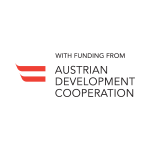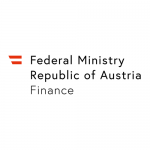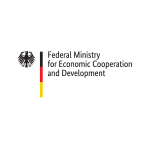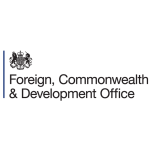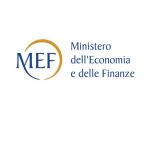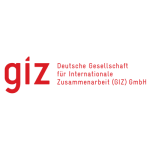Supported Projects
Algeria
The Future of Agri-food System Jobs in the Maghreb Region
Sector: Green Jobs
Objective: This project identifies the constraints to inclusive and green job growth in the agri-food system through original data collection, empirical analysis, and knowledge exchange.
Haiti
Designing Business Development Services to Build Firm Resilience to Crises and Support the Recovery for Post-covid-19 Job Creation: The Fragile Haitian Context
Sector: Private Sector
Objective: This project improves firms’ resilience to shocks by designing and piloting Business Continuity Plans (BCP) informed by existing BCP literature and shock-response strategies already adopted by Haitian entrepreneurs.
India
Does Technology Adoption Explain the Gender Gap in Women Led Business Performance?
Sector: Education
Objective: The project develops a framework and implementation roadmap for vocational education in government-managed schools in Andhra Pradesh.
Indonesia
Building Back Better by Way of Green Jobs and Investing on Green Skills
Sector: Green Jobs
Objective: This project develops a methodology for developing countries to identify the skills needed to transition workers into green jobs.
Global
Childcare Policy Indicators
Sector: Gender
Objective: The project contributes to the design of better childcare policies which can bring access to more and better jobs, especially for women, through data and analysis on legal and regulatory frameworks for the provision of childcare services in 100 economies.
Expanding the Impact of the Gender Equality and Returns (GEAR) Program to the Agribusiness Sector
Sector: Green Jobs
Objective: This project expands IFC’s Gender Equality and Returns (GEAR) to agribusiness clients and contributes to strengthening the business case for approaches that simultaneously promote gender equality and business performance.
IFC Employability Program
Sector: Private Sector
Objective: The project supports tertiary education institutions to prepare students for the job market.
Impact of the Green Transition on the Poor
Sector: Green Jobs
Objective: The project analyzes the impacts of the green transition on labor market inclusion of the poor.
Informing Policy Advice for Jobs Recovery Based on Business Pulse Survey Data
Sector: Private Sector
Objective: Grounded in the Business Pulse Surveys, this project informs policy dialogue and the design of effective post-COVID interventions by presenting new evidence on jobs creation and destruction.
Online Gig Economy Jobs for Youth in a post-COVID era
Sector: Digital Development
Objective: This project assesses the state of online and digital gig jobs to inform operations promoting youth employment.
Does Technology Adoption Explain the Gender Gap in Women Led Business Performance?
Sector: Gender
Objective: Using a novel and granular firm-level survey that covers 11 countries, this project explores the gender-specific tendencies in adopting sophisticated technology, which could potentially explain the gender productivity gap.
Lao PDR
Feasibility Study on Greening Jobs in Waste Collection and Tourism in Laos
Sector: Green Jobs
Objective: This project contributes to improving the working conditions and job stability of waste pickers and identifies opportunities to support inclusive job growth in a COVID-19-recovery context.
Liberia
Recovery of Economic Activity for Liberian Informal Sector Employment
Sector: Digital Development
Objective: This project expands access for the vulnerable to income-earning opportunities in the informal sector in response to the COVID-19 crisis by providing grant support to the targeted households.
Mozambique
Unlocking Women’s Job-creation Potential in Mozambique to Build Back Better
Sector: Gender
Objective: This project aims to improve the jobs and women’s empowerment impact of the Harnessing the Demographic Dividend project, and generates a knowledge base on project designs that promote female entrepreneurship.
Morocco
The Future of Agri-food System Jobs in the Maghreb Region
Sector: Green Jobs
Objective: This project identifies the constraints to inclusive and green job growth in the agri-food system through original data collection, empirical analysis, and knowledge exchange.
Tunisia
The Future of Agri-food System Jobs in the Maghreb Region
Sector: Green Jobs
Objective: This project identifies the constraints to inclusive and green job growth in the agri-food system through original data collection, empirical analysis, and knowledge exchange.
Türkiye
Turning the Tide on Pollution: A Blue Wager Program for the Black Sea
Sector: Green Jobs
Objective: This project addresses coastal pollution in the Black Sea while promoting sustainable employment in the blue economy with a focus on vulnerable groups.
SSA
Inclusive JET for the Bottom 80% in Africa
Sector: Inequality
Objective: This project supports the operationalization of the Jobs and Economic Transformation agenda in the African region, focusing on the bottom 80%, to include the poor and vulnerable in African countries’ post-COVID sustainable recovery strategies.
West Africa
The Role of SME Lending on Employment
Sector: Private Sector
Objective: This project studies the business activity, economic growth and employment trends of SME borrowers who have obtained access to finance through IFC’s SLGP program.
Digital Development
Recovery of Economic Activity for Liberian Informal Sector Employment
Country: Liberia
Objective: This project expands access for the vulnerable to income-earning opportunities in the informal sector in response to the COVID-19 crisis by providing grant support to the targeted households.
Online Gig Economy Jobs for Youth in a post-COVID era
Country: Global
Objective: This project assesses the state of online and digital gig jobs to inform operations promoting youth employment.
Gender
Childcare Policy Indicators
Country: Global
Objective: The project contributes to the design of better childcare policies which can bring access to more and better jobs, especially for women, through data and analysis on legal and regulatory frameworks for the provision of childcare services in 100 economies.
Unlocking Women’s Job-creation Potential in Mozambique to Build Back Better
Country: Mozambique
Objective: This project aims to improve the jobs and women’s empowerment impact of the Harnessing the Demographic Dividend project, and generates a knowledge base on project designs that promote female entrepreneurship.
Does Technology Adoption Explain the Gender Gap in Women Led Business Performance?
Country: Global
Objective: Using a novel and granular firm-level survey that covers 11 countries, this project explores the gender-specific tendencies in adopting sophisticated technology, which could potentially explain the gender productivity gap.
Green Jobs
Impact of the Green Transition on the Poor
Country: Global
Objective: The project analyzes the impacts of the green transition on labor market inclusion of the poor.
Feasibility Study on Greening Jobs in Waste Collection and Tourism in Laos
Country: Lao PDR
Objective: This project contributes to improving the working conditions and job stability of waste pickers and identifies opportunities to support inclusive job growth in a COVID-19-recovery context.
Turning the Tide on Pollution: A Blue Wager Program for the Black Sea
Country: Türkiye
Objective: This project addresses coastal pollution in the Black Sea while promoting sustainable employment in the blue economy with a focus on vulnerable groups.
Expanding the Impact of the Gender Equality and Returns (GEAR) Program to the Agribusiness Sector
Country: Global
Objective: This project expands IFC’s Gender Equality and Returns (GEAR) to agribusiness clients and contributes to strengthening the business case for approaches that simultaneously promote gender equality and business performance.
Building Back Better by Way of Green Jobs and Investing on Green Skills
Country: Indonesia
Objective: This project develops a methodology for developing countries to identify the skills needed to transition workers into green jobs.
The Future of Agri-food System Jobs in the Maghreb Region
Country: Morocco, Tunisia, and Algeria
Objective: This project identifies the constraints to inclusive and green job growth in the agri-food system through original data collection, empirical analysis, and knowledge exchange.
Education
Vocational Education in Andhra Pradesh
Country: India
Objective: The project develops a framework and implementation roadmap for vocational education in government-managed schools in Andhra Pradesh.
Inequality
Inclusive JET for the Bottom 80% in Africa
Country: SSA
Objective: This project supports the operationalization of the Jobs and Economic Transformation agenda in the African region, focusing on the bottom 80%, to include the poor and vulnerable in African countries’ post-COVID sustainable recovery strategies.
Private Sector
IFC Employability Program
Country: Global
Objective: The project supports tertiary education institutions to prepare students for the job market.
The Role of SME Lending on Employment
Country: West Africa
Objective: This project studies the business activity, economic growth and employment trends of SME borrowers who have obtained access to finance through IFC’s SLGP program.
Informing Policy Advice for Jobs Recovery Based on Business Pulse Survey Data
Country: Global
Objective: Grounded in the Business Pulse Surveys, this project informs policy dialogue and the design of effective post-COVID interventions by presenting new evidence on jobs creation and destruction.
Designing Business Development Services to Build Firm Resilience to Crises And Support the Recovery for Post-covid-19 Job Creation: The Fragile Haitian Context
Country: Haiti
Objective: This project improves firms’ resilience to shocks by designing and piloting Business Continuity Plans (BCP) informed by existing BCP literature and shock-response strategies already adopted by Haitian entrepreneurs.

